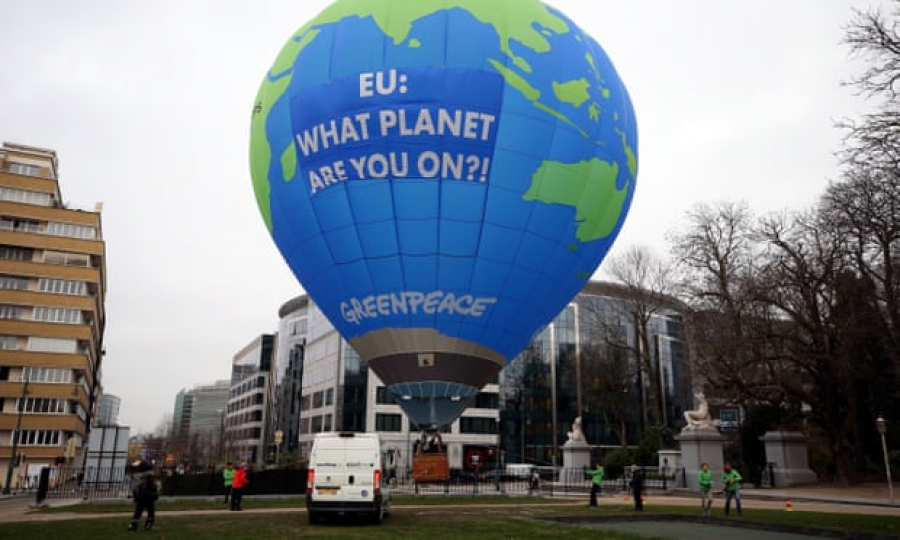Older people will have to make sacrifices in the fight against climate change or today’s children will face a future of fighting wars for water and food, the EU’s deputy chief has warned.
Frans Timmermans, vice-president of the EU commission, said that if social policy and climate policy are not combined, to share fairly the costs and benefits of creating a low-carbon economy, the world will face a backlash from people who fear losing jobs or income, stoked by populist politicians and fossil fuel interests.
He said: “It’s not just an urgent matter – it’s a difficult matter. We have to transform our economy. There are huge benefits, but it’s a huge challenge. The biggest threat is the social one. If we don’t fix this, our children will be waging wars over water and food. There is no doubt in my mind.”
He said: “It’s not just an urgent matter – it’s a difficult matter. We have to transform our economy. There are huge benefits, but it’s a huge challenge. The biggest threat is the social one. If we don’t fix this, our children will be waging wars over water and food. There is no doubt in my mind.”
“Where I see a huge risk is that you get an alliance between those who don’t want change because they see their interest affected, whether it’s in fossil fuels or in traditional economic circles,” Timmermans told the Guardian in an interview. “Those interests combine with the fear of negative social consequences. Then you could get a counter-momentum where people say, ‘Hang on, not too fast, people cannot stomach this.’”
He added: “Those of us who understand we need to move fast should make the social issue the pivotal issue in all of this. I really call upon all of those in the climate movement to join me in focusing on the social issue more than they’ve done in the past. Because this could become the biggest stumbling block.”
He warned that sacrifices would be needed from the older generation to ensure that young people can live in a safe climate. Today’s older people were the beneficiaries of a previous generation’s sacrifice, and were now being called on to make changes themselves, he said.
“Sometimes I wonder whether we are aware of the transformation we’re heading to, and how profound it is. It’s an effort comparable to restructuring after a violent conflict. I used to talk to my grandparents and my parents about how they saw this, after the war. They said, ‘Well, we sacrificed a lot because we knew our children would be better off.’ And this feeling is not there yet in our society.”
Changing people’s lives today would be difficult, but the benefits would be felt by today’s children, he added. “This for politics is a huge, huge challenge. We need to recapture that feeling of a purpose – doing something not for yourself, but for others, which I think has always led to society is at its best.”
Any sacrifice would be mild for most, such as the inconvenience of having a house renovated to low-carbon standards, or switching to electric transport, and eating less meat. But for some, it could involve a change of job or living patterns.
Timmermans’ warnings reflect a growing concern among climate experts that politicians have failed to show people the benefits of a low-carbon society, which include cleaner air and water, more livable cities, and higher levels of health and wellbeing, as well as defusing the climate crisis. Politicians, including Donald Trump and Republicans in the US, have presented tackling climate breakdown as a cost, and many people are fearful for their jobs.
By Fiona Harvey (The Guardian)














